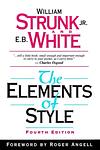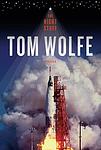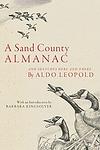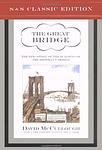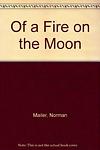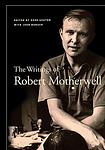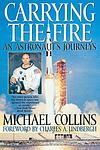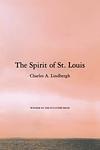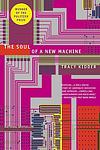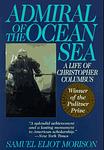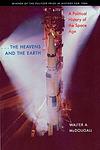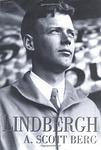The Greatest American "Engineering" Books of All Time
Click to learn how this list is calculated.
This list represents a comprehensive and trusted collection of the greatest books. Developed through a specialized algorithm, it brings together 300 'best of' book lists to form a definitive guide to the world's most acclaimed books. For those interested in how these books are chosen, additional details can be found on the rankings page.
Genres
The category of "Engineering" in books encompasses a wide range of topics related to the design, development, and application of various technologies and systems. This includes fields such as mechanical, electrical, civil, chemical, and aerospace engineering, as well as sub-disciplines like robotics, materials science, and environmental engineering. Books in this category may cover theoretical concepts, practical applications, case studies, and emerging trends in the field. They are aimed at students, professionals, and enthusiasts who seek to deepen their knowledge and skills in engineering.
Countries
Date Range
Reading Statistics
Click the button below to see how many of these books you've read!
Download
If you're interested in downloading this list as a CSV file for use in a spreadsheet application, you can easily do so by clicking the button below. Please note that to ensure a manageable file size and faster download, the CSV will include details for only the first 500 books.
Download-
1. Silent Spring by Rachel Carson
This influential environmental science book presents a detailed and passionate argument against the overuse of pesticides in the mid-20th century. The author meticulously describes the harmful effects of these chemicals on the environment, particularly on birds, hence the metaphor of a 'silent spring' without bird song. The book played a significant role in advancing the global environmental movement and led to a nationwide ban on DDT and other pesticides in the United States.
-
2. The Elements of Style by E. B. White, William Strunk Jr.
This book is a definitive guide and classic manual on the principles of English language read by millions of readers. The 18 main topics are organized under headings such as Elementary Rules of Usage, Elementary Principles of Composition, A Few Matters of Form, Words and Expressions Commonly Misused, and An Approach to Style. The book's unique tone, wit and charm have conveyed the principles of English style to millions of readers, making it a beloved resource for those who want to write clear, correct and effective prose.
-
3. The Right Stuff by Tom Wolfe
"The Right Stuff" is a non-fiction novel that explores the lives and experiences of the first Project Mercury astronauts selected for the NASA space program in the 1960s. The book delves into the personal and professional lives of these astronauts, highlighting their courage, competitiveness, and the immense pressure they faced. It also provides a detailed account of the space race between the United States and the Soviet Union during the Cold War era.
-
4. The Great Railway Bazaar by Paul Theroux
"The Great Railway Bazaar" is a travelogue in which the author embarks on a four-month journey by train from London through Europe, the Middle East, the Indian subcontinent, Southeast Asia, and Siberia, and then back to Europe. The book is a vivid and insightful account of the people, cultures, landscapes, and experiences encountered during the journey, painting a unique picture of the world as seen from the perspective of a train window. The author's sharp observations and engaging storytelling make this journey as much an inner exploration as a geographical one.
-
5. Guns, Germs, and Steel by Jared Diamond
The book is a comprehensive exploration of the different trajectories of human societies throughout history. It argues that environmental factors, rather than racial or cultural differences, are the primary reason why some societies developed more advanced technology and political systems. The author uses a multidisciplinary approach, drawing from fields such as geography, evolutionary biology, and linguistics, to support his thesis. The book covers a wide range of topics, including the domestication of plants and animals, the invention of writing, and the spread of diseases.
-
6. A Sand County Almanac by Aldo Leopold
This book is a compilation of nature-related essays that highlight the author's experiences and observations as a conservationist. The author provides a thoughtful and eloquent reflection on the relationship between land and people, emphasizing the importance of conservation and sustainability. Through his writings, he advocates for a 'land ethic' where humans view themselves as part of the natural community rather than conquerors of it, promoting a harmonious coexistence with nature.
-
7. The Devil In The White City by Erik Larson
This book intertwines the true tales of two men during the 1893 Chicago World's Fair: Daniel H. Burnham, the architect responsible for the fair's construction, and H.H. Holmes, a serial killer masquerading as a charming doctor. The narrative alternates between the story of Burnham, his challenges and successes in building the fair, and the chilling story of Holmes, who used the fair to lure his victims to their death. It's a vivid portrayal of the Gilded Age and a chilling exploration of one of America's first known serial killers.
-
8. A Bright Shining Lie by Neil Sheehan
"A Bright Shining Lie" is a detailed account of the Vietnam War through the eyes of a charismatic and controversial American military advisor. The book provides an in-depth examination of the war, delving into the complex political and military strategies, the culture of corruption and deceit, and the impact on both Vietnamese civilians and American soldiers. The narrative also explores the protagonist's personal life, including his troubled marriage and his eventual disillusionment with the war. The book is not just a biography, but a critical analysis of the American involvement in Vietnam.
-
9. The Perfect Storm by Sebastian Junger
This non-fiction book narrates the story of the Andrea Gail, a commercial fishing vessel that was lost at sea during the "Perfect Storm" of 1991. The author combines meteorological science, history, and personal accounts to paint a vivid picture of the harrowing ordeal faced by these six fishermen. The book also explores the dangerous profession of deep-sea fishing and the tight-knit communities that are affected by such tragedies.
-
10. Great Bridge by David McCullough
This book is a detailed account of the construction of the Brooklyn Bridge, one of the most significant and iconic landmarks in New York City. It provides an in-depth look at the political, architectural, and personal challenges faced during its 14-year construction period in the late 19th century. The narrative also explores the lives of the Roebling family, who were the chief engineers and designers of the bridge, along with the societal changes and technological advancements of the era.
-
11. In the Heart of the Sea by Nathaniel Philbrick
This historical narrative tells the true story of the 19th-century whaleship Essex, which was rammed and sunk by a sperm whale in the South Pacific. Stranded thousands of miles from land, the crew of the Essex was pushed to their limits and forced to do the unthinkable to stay alive. The tale explores the harrowing ordeal of these men through their long journey at sea, their encounters with nature's fury, hunger, disease, and their own fear and despair.
-
12. A Fire on the Moon by Norman Mailer
"A Fire on the Moon" is a detailed account of the Apollo 11 mission, which resulted in the first man landing on the moon. The book offers an in-depth exploration of the technical aspects of the mission, the astronauts involved, and the political and cultural implications of the historic event. It also delves into the author's personal reflections and philosophical musings on space exploration, technology, and the human condition.
-
13. Cadillac Desert by Marc Reisner
"Cadillac Desert" is a detailed exploration of the water crisis in the American West. The book delves into the history, politics, and environmental impact of water development in this region, highlighting the role of government policies and engineering projects. It also discusses the unsustainable use of water resources, the impact on local ecosystems, and the potential consequences of continued mismanagement, providing a comprehensive overview of a critical environmental issue.
-
14. Documents of Modern Art by Robert Motherwell
"Documents of Modern Art" is a comprehensive collection of writings that provides an intellectual and historical context to the development of modern art. The book features a wide range of essays, manifestos, letters, and other writings by influential artists, critics, and scholars from the late 19th century to the mid-20th century. The collection effectively traces the evolution of modern art, exploring its various movements, including Impressionism, Cubism, Surrealism, and Abstract Expressionism, and offers readers a deeper understanding of the philosophical and theoretical underpinnings of the art world during this period.
-
15. Carrying the Fire by Michael Collins
"Carrying the Fire" is an autobiographical account of an astronaut's journey to the moon and back. It provides an inside look into the life of an astronaut, the rigorous training they undergo, the thrill and dangers of space travel, and the awe-inspiring experience of seeing Earth from space. The book also delves into the technical aspects of space missions, making it an informative read for those interested in space exploration.
-
16. The Prize: The Epic Quest for Oil, Money, and Power by Daniel Yergin
"The Prize: The Epic Quest for Oil, Money, and Power" is a comprehensive history of the global oil industry, tracing its development from the drilling of the first well in Pennsylvania to the oil crisis of the 1970s and its aftermath. The book examines the key players, political conflicts, and technological advancements that have shaped the industry, and explores the profound impact of oil on the global economy and geopolitics. It also discusses the environmental and social challenges associated with oil production and consumption.
-
17. The Influence of Sea Power Upon History, 1660-1783 by Alfred Thayer Mahan
This book is a comprehensive examination of the importance of naval warfare in the period between 1660 and 1783. The author argues that sea power was a crucial factor in determining the outcomes of historical events during this period, including the rise and fall of empires and the outcomes of wars. The book provides detailed analyses of major naval battles, strategies, and technologies, as well as the economic and political factors that influenced the development of naval power. It is considered a seminal work in the field of naval history and strategy.
-
18. Falling Free by Lois McMaster Bujold
In this science fiction narrative, the story revolves around an engineer who is assigned to a space station where genetically engineered humans, designed with four arms and no legs for zero-gravity work, are being bred by a corporation for economic gain. When the company decides to abandon the project, viewing these beings, known as "quaddies," as obsolete and a liability, the engineer faces a moral dilemma. He must choose between his own safety and career or the welfare of the quaddies. Ultimately, he decides to rebel against the corporation, leading a daring escape plan to save the quaddies from being decommissioned and to find them a new home where they can live free.
-
19. The Spirit of St. Louis by Charles Lindbergh
This book is a detailed personal account of a historic transatlantic flight in 1927 by a young aviator. The narrative describes the meticulous planning, the dangerous journey, and the worldwide acclaim that followed. The pilot’s courage, skill, and determination, along with his fascination with science and his love for flying, are vividly portrayed in this captivating memoir.
-
20. The Soul of a New Machine by Tracy Kidder
The book is a detailed account of a team of engineers at a prominent technology company in the late 1970s, as they race against time to design and build a new minicomputer. The narrative delves into the high-pressure world of corporate and technological competition, exploring the personal and professional dynamics among the team members. It offers an insightful look into the world of computer engineering, the obsession with innovation, and the relentless pursuit of success.
-
21. The American Leonardo: The Life of Samuel F B. Morse by Carleton Mabee
This book is a comprehensive biography of Samuel F. B. Morse, a renowned American inventor and artist. It provides an in-depth look into Morse's life, detailing his contributions to the world, including the invention of the telegraph and the Morse code. The book also explores his lesser-known career as a painter, his involvement in politics, his personal life, and the struggles he faced along his journey. The narrative offers a balanced view of Morse, acknowledging his genius while also highlighting his flaws and controversies.
-
22. Admiral of the Ocean Sea by Samuel Eliot Morison
This book is a comprehensive biography of Christopher Columbus, providing an in-depth exploration of his life, voyages, and discoveries. It delves into his navigation skills, his interactions with indigenous people, and his role in the colonization of the New World. The author, a renowned historian, combines historical facts with a narrative style, offering a detailed account of Columbus's expeditions, his struggles, and his achievements, thus painting a vivid picture of this complex and controversial figure in history.
-
23. The Heavens and the Earth by Walter A. McDougall
"The Heavens and the Earth" explores the history of the Space Age, focusing on the political, cultural, and technological developments that led to the exploration of space. It delves into the Cold War rivalry between the United States and the Soviet Union and how it fueled the space race. The book also examines the role of governments, private industry, and popular opinion in shaping the trajectory of space exploration. It provides a comprehensive view of how the Space Age has influenced and been influenced by broader societal trends.
-
24. Lindbergh by A. Scott Berg
This biography provides a comprehensive look at the life of Charles Lindbergh, the famous aviator who made the first solo nonstop flight across the Atlantic Ocean in 1927. The book delves into his personal life, including his marriage to Anne Morrow Lindbergh, the tragic kidnapping and murder of their son, his controversial views on race and his involvement with the America First Committee, which opposed U.S. entry into World War II. It also explores his scientific contributions, such as his work in the field of aviation and his involvement in the development of the artificial heart.
Reading Statistics
Click the button below to see how many of these books you've read!
Download
If you're interested in downloading this list as a CSV file for use in a spreadsheet application, you can easily do so by clicking the button below. Please note that to ensure a manageable file size and faster download, the CSV will include details for only the first 500 books.
Download
